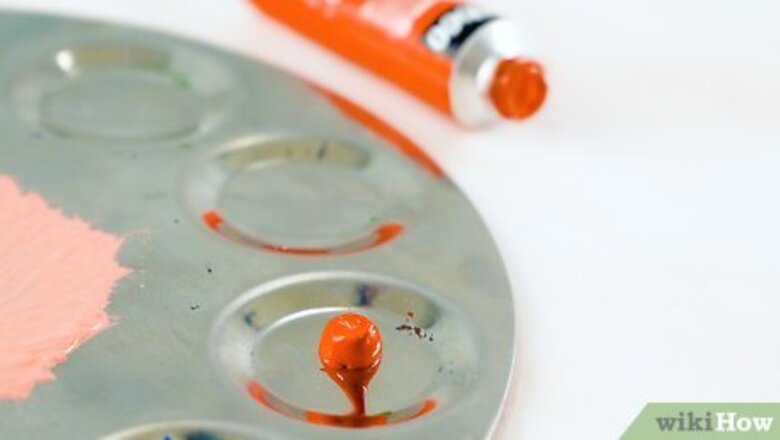
views
X
Research source
Combining Acrylic or Oil Paint
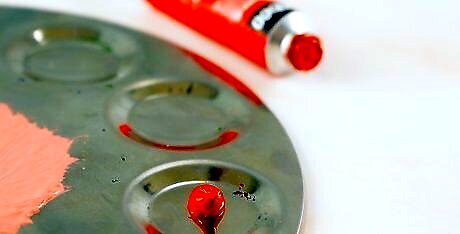
Choose your red paint. Different shades of red produce different shades of pink when mixed with white paint. Experiment with different reds as you go. In order to achieve the brightest, most lasting shade of pink, try Permanent Alizarin Crimson or Quinacridone red acrylics and mix them with Titanium White. Vermilion will produce a nice shade of pure pink.Use of a brick red will produce a muddier pink, closer to a peach. Darker reds such as Alizarin Crimson Hue make a pink color tinged with blue or purple,so they are good for shades such as magenta.
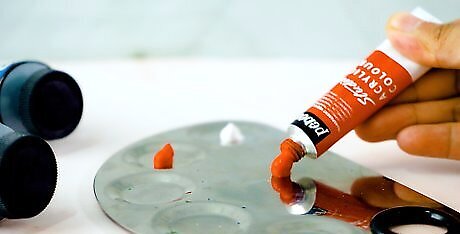
Spread red paint. Take your canvas, paper, or mixing board. Squeeze out your red paint on top of it. This red will be turned into pink, so keep it in a separate area until you are able to judge what pink you’ll get and how much you need.
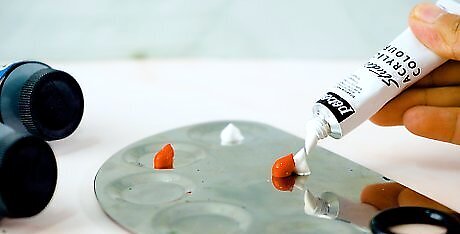
Add white paint. Near the red, place white paint. Start with a dab to save paint. When you mix it in with the red, you can always add more later if you need more to dilute the pure red color.
Mix the paints. Using painting tools such as a brush or knife, mix your white into your red. Start out with a little bit to determine what tint of pink begins to form. You can add more white to get a brighter and brighter tint, but every red has its own tint strength, so you'll eventually reach the limit to how pink you can make that particular red. The darker the red you used, the more white paint you will need to lighten it to pink. Try softening your pink with yellow to bring it closer to a peach or a salmon color. Add blue or violet to bring the pink closer to fuchsia or magenta.
Mixing Watercolors
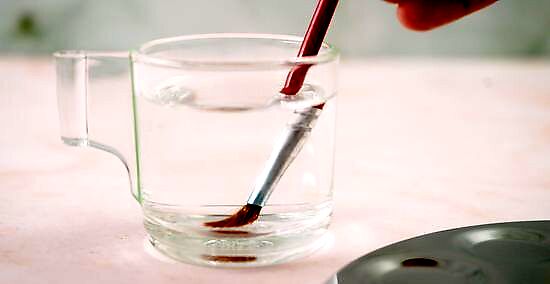
Wet your brush. Dip your clean brush in your water container. Press it against the bottom of the container to open up the bristles, then run it against the rim to release excess water.
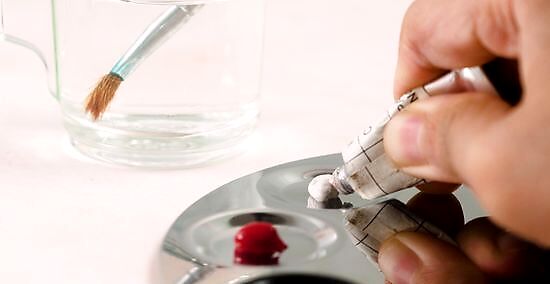
Place red and white paint on a mixing surface. If you’re using wet watercolor from a tube, squeeze out as much red and white paint as you need. If you’re using dry watercolors, you can use your brush to paint red onto the surface of your project and mix there.
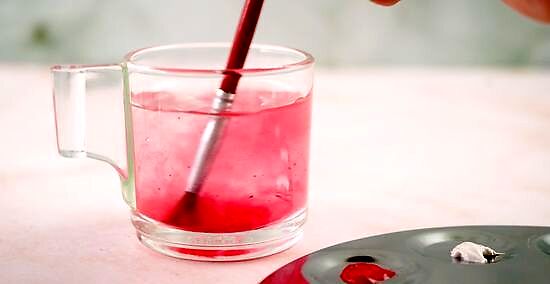
Add red to your water container. If you are using wet watercolor paint, stroke your moist brush over your red paint. Mix it into your water container. Don’t dry the brush when done. Slide the brush across the rim of the container once to clean the brush. Repeat the process to add more red until you get the value you want.
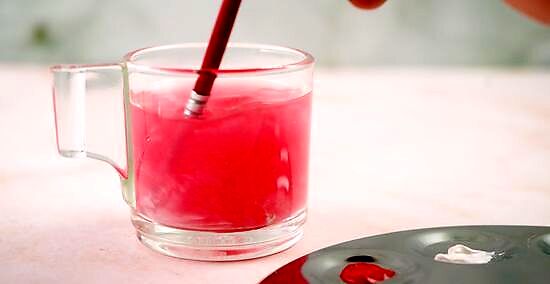
Add white to your water container. Stroke your moist brush over your white paint. Mix it in the water container the same way you did with the red paint. Your paint will begin to take on a pink tint. Continue to add more white until you achieve pink.
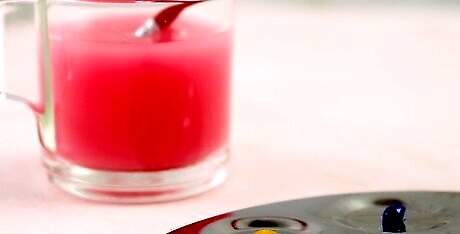
Mix in other colors. Whether you’re using wet or dry watercolors, you can also make different types of pink such as by adding a dab of purple and then yellow or by diluting red with water and not using white. Experiment to find the pink that’s right for you. When you don’t mix in white, you can get a standard pink. This depends on how much you dilute the red with water before it dries. To get softer shades of pink, add yellow. This will eventually give you a peach color. A little bit of violet or blue will give you a hot pink. Add more to get a shade such as magenta.
Dyeing with Food Coloring
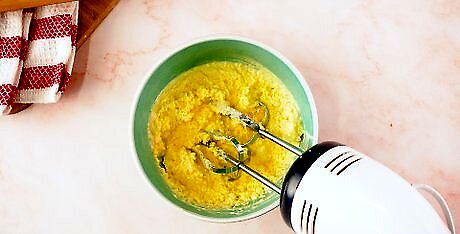
Set out a portion of white substance. You can do this with materials such as frosting, glue, or hair conditioner. The amount you set out should be the total amount of pink coloring you wish to make. Put it in a mixing bowl so you’ll have adequate space to work in the dye.
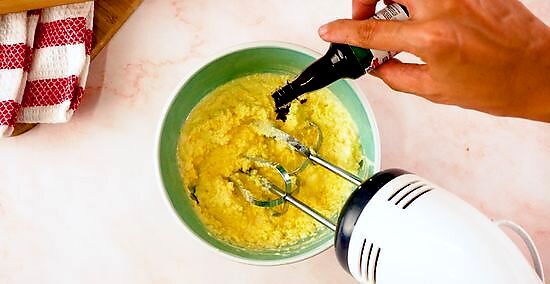
Add red food coloring. Red is a common coloring and can be mixed in to turn the white substance pink. The problem with red food coloring is that it is very strong, so start with a drop first and add more later if you need to make the shade deeper. Larger amounts of frosting or other material require more drops. You can also use alternative colors such as rose. These lighter food colorings can give a better pink color to your frosting.
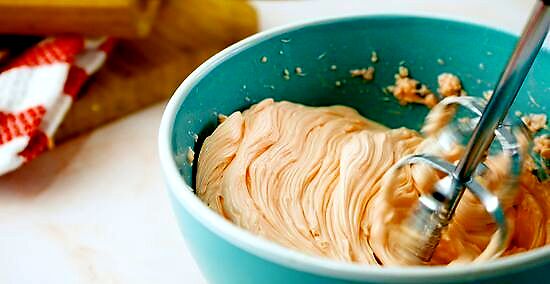
Stir well. Use a wooden spoon or substitute kitchen implement to mix in the food coloring. Turn over the frosting or other material until you’re sure that the coloring has been absorbed and spread, then add more red coloring as needed.
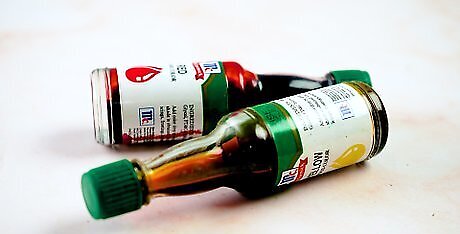
Mix in other colors. To tame your mixture into the tint of pink you desire, try adding drops of food coloring other than red. Experiment with it. Work slowly, a drop at a time. Using a food coloring such as blue, violet, green, or even brown will darken your pink, making it into a hot pink and then a fuchsia or magenta. Add a lighter color such as yellow to make your pink into peach.




















Comments
0 comment